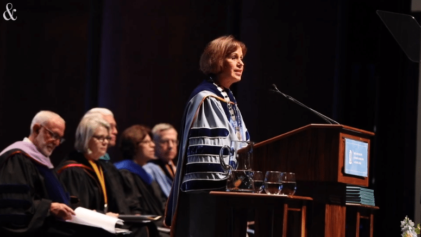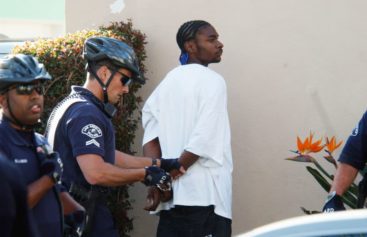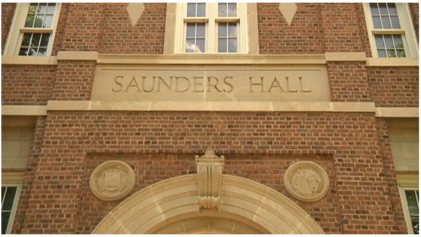
McCants even says he received all A’s and made the Dean’s list one semester even though he rarely (if ever) attended any of his four classes. Media outlets are centering on whether or not UNC basketball coaches Roy Williams or Matt Doherty (who preceded Williams) knew what was going on with McCants and others. McCants emphatically claims both did. The McCants situation is yet another example of how far some individuals and universities may go to keep the college athletics gravy train rolling.
I can’t speak to the veracity of McCants’ claims or his motivation for levying them. What I do know is something a bit insidious is buried in the reporting of this case in that the only department mentioned by name is Af-Am Studies. The singling out of this department causes concern. If the supposed offender was the department of Communication, History, Philosophy or Anthropology, no one would question whether or not the department or field should exist. They do just that when Black Studies is mentioned.
The progression of the UNC situation certainly raises red flags. Something untoward seems to have happened involving former Af-Am Studies chairman Julius Nyang’oro who resigned amid allegations of impropriety related to the football program in 2011. Nyang’oro was eventually indicted on a felony fraud charge of accepting $12,000 for a summer class he supposedly taught that never met. The case is ongoing.
The university has consistently said Nyang’oro’s alleged misbehavior was “isolated.” Even if he is guilty as sin, his malfeasance should not be used to condemn an entire department or field. Af-Am at UNC, in fact, has a number of fine scholars whom I know personally and respect, including Dr. Perry Hall and my Morehouse brother Dr. Walter Rucker. Beyond that, anyone using this case to attack Black Studies as a whole would do well to remember the field is strong and necessary.
Those who argue to the contrary have little sense of history and an even poorer grip on the future. Presently, we live in the most multiracial, multiethnic and multicultural America ever. For good or ill, this demographic trend is not likely to change – the country is becoming more “colorful.” In this new 21st century American reality, no university can call itself a “serious” educational institution without housing good Black, Native American, Asian, Latin, and Women’s and Gender Studies. It is not unreasonable then for one to argue that Black Studies will grow rather than whither as we move forward.
Quantitative exploration of Black Studies’ current footprint in American higher education is revealing. Indeed, a recent study by Dr. Abdul Alkalimat and colleagues at the University of Illinois found that of 1,777 institutions surveyed, “76 percent have some form of Black Studies, 20 percent (361 institutions) with formal units and 56 percent (999 institutions) without units but with a course or courses … dedicated to the Black experience.” This important study goes on to note that 91 percent of public colleges and universities and 77 percent of private schools have either units or courses. More than a third (37 percent) of public colleges and universities have formal Black Studies units.
Supporters of Black Studies who believe it is viable because of the notable achievements of a few superstar professors like Henry Louis Gates at Harvard or the growing presence of programs and classes nationally actually miss the point. The core philosophical impetus for Black Studies since its genesis at San Francisco State University in the mid-1960s is its most important attribute. At its heart, Black Studies has been, and continues to be, immersed in a perpetual battle to affirm that black people have lived lives worth living and have histories worth studying. Cases involving people like McCants and Nyang’oro will not change that fact.
So, to my Black Studies colleagues at UNC and around the country – MAINTAIN! To those of you who have no idea what we do, go to your nearest campus and take a real class. You might just learn something.
Dr. Ricky L. Jones is professor and chair of the University of Louisville’s Pan-African Studies Department. His books include “Black Haze: Violence, Sacrifice, and Manhood in Black Greek-Letter Fraternities” and “What’s Wrong with Obamamania?: Black America, Black Leadership, and the Death of Political Imagination.” He has written a longtime award-winning column, “Keeping Up with the Jones,” for the Louisville Eccentric Observer and is a new scholar writer for Atlanta Black Star. His columns are archived at http://www.leoweekly.com/category/column-name/keeping-jones. Visit him at www.rickyljones.com. Find him on Facebook and follow him on Twitter @DrRickyLJones.


